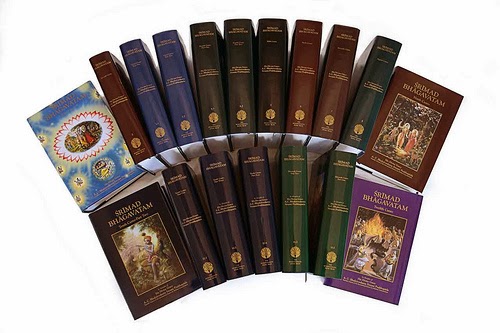Question: In Srimad Bhagavatam 1st canto 5th chapter, Srila Prabhupada says that Vedanta-sutra is the complete deliberation on the impersonal Brahman and yet he also says that Srimad Bhagavatam, which is purely Personal is the natural commentary. How to reconcile these two apparently contradicting statements?
Answer by Romapada Swami: Jiva Goswami teaches in Bhagavat-Sandarbha that the term Brahman, whenever found in the Vedas (including in Vedanta Sutra) refers to Bhagavan, just as whenever we speak of sunshine we should know that the sun is ultimately what is being indicated by the presence of sunshine.
Vedanta-sutra is appreciated primarily by impersonalists, which is the message of the Canto 1, Chapter 5 reference sited. However, both Srimad Bhagavatam and Govinda-bhasya (Baladev’s Gaudiya-vaisnava commentary on Vedanta-sutra) are purely personal commentary on Vedanta-sutra. This means that both Srimad Bhagavatam and Govinda-bhasya point us to the “sun” rather than the sunshine, or to the personal feature of the Absolute Truth as opposed to the impersonal feature.
You might find the following verse and purport to be very illuminating as well. It is one of Dhruva Maharaja’s prayers to Lord Vishnu, who is standing before Dhruva. See Srimad Bhagavatam 4.9.16. Be sure to examine carefully the purport.
“My dear Lord, in Your impersonal manifestation of Brahman there are always two opposing elements—knowledge and ignorance. Your multienergies are continually manifest, but the impersonal Brahman, which is undivided, original, changeless, unlimited and blissful, is the cause of the material manifestation. Because You are the same impersonal Brahman, I offer my respectful obeisances unto You.”







